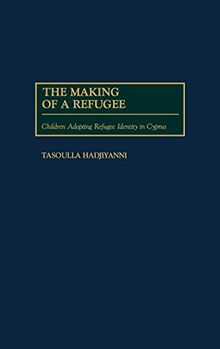
Through an examination of interviews provided by 100 children of refugees in Cyprus, born after their family's displacement, Hadjiyanni illustrates the formation of a refugee consciousness, an identity adopted by many children who never experienced the actual displacement of their family. Focusing on the process by which a child born into a refugee family develops a refugee identity, the book identifies nine dimensions that inform this consciousness. Establishing the family as the primary transmitter of the refugee identity and the child as its constructor, the author points to the power of homeplace in forming and supporting such an identity. The book challenges the notion that refugee consciousness is a separate identity and a crisis by reinterpreting it as a resistance to adversity. Shedding new light on what it means to be a refugee, this work is a welcome addition to the field.
Beginning with a discussion of the meaning of the term refugee, and how it has been adopted by the children of some refugees in Cyprus, the author moves to an examination of the meaning of past and present to the formation of a refugee consciousness. She then looks to the causes of such identity formation, focusing on the transference of identity from parent to child, and the effects of past loss on children who have not actually experienced displacement. Housing issues are also examined as a contributing factor, as refugee housing is typically distinct, and constrained, compared to housing for native citizens of a community. The author concludes her work with a discussion of the implications of the Cyprus example for both the future and for general refugee studies.